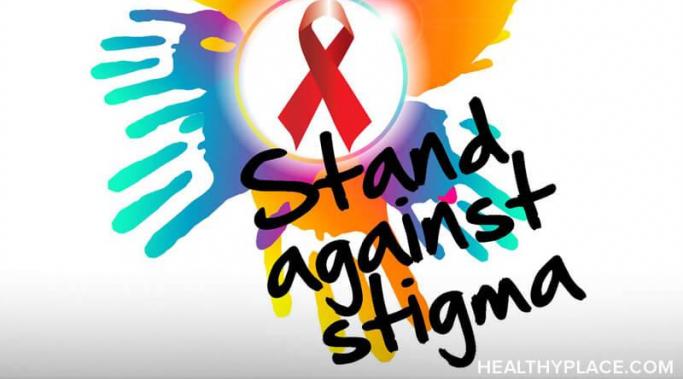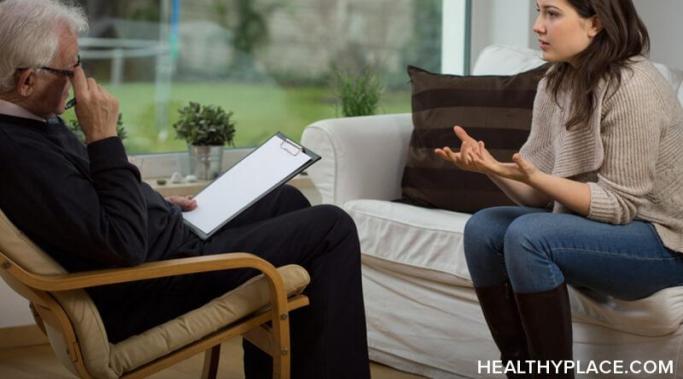Having undiagnosed mental health issues is really hard; I'm not going to lie. For so many years, I have craved having a distinct, definitive mental health diagnosis, but it just never seems to happen. I've had several diagnoses over the years, but none of them have ever really felt right. Sometimes I wonder if I'm the problem, if nothing will ever feel right for me.
Embracing Mental Health Recovery
According to the National Action Alliance for Suicide Prevention, the suicide death rate in the first week after patients leave inpatient psychiatric care is 300 times higher than the general population. This doesn't mean that hospitalization isn't effective; it means that hospitalization is not meant to be the sole treatment for mental illness. I wish mental hospitals were like car washes, and we all magically emerge sparkling sane upon reentry to the world, but my hardest days have always been the first few days after discharge.
For the last year or so, I have been doing a lot of work to process my childhood trauma. I've been in therapy, I've been taking psychiatric medication, I've been doing outside reading, and my therapist and I even found a way to work one of my favorite TV shows into my trauma work. In general, I think it's going really well, except for one problem: parenting. I don't know how to avoid causing my son the same trauma that happened to me.
Even though I've been working toward mental health recovery for years now, feeling better makes me nervous. I spent the past few months struggling harder than I have in quite a while, so I reached out to my psychiatrist, and he prescribed me a new medication. He said it should help prevent some of my suicidal ideation and give me more energy so I would be less overwhelmed by my life. There are so many things that can go wrong with new medications, but that didn't happen for me. It worked exactly like the doctor said it would. I feel much better, and that makes me nervous.
For many people with mental illness, mental health medication and recovery go hand in hand. Unfortunately, psychiatric medication comes with a lot of stigma and stress. There are a lot of people who don't understand how psychiatric medication really works or why it's so important for many people in recovery, and their stigmatized view of medication can stick in our brains long after we've heard them say something.
Therapy has been my number one tool in my recovery, but every now and again, my therapist is wrong about something, and it freaks me out. I've had several therapists over the years, and in the past, when a therapist misunderstood something I said or made an assumption that was incorrect, I had no idea how to respond. I felt ignored, wrong, and bad, and I had no idea how to say any of this to them. But it doesn't have to be that way. It is possible to speak up when you're being misunderstood.
Limitations in mental health recovery are real; but lately, I've been doing everything in my power to ignore my increasingly obvious limitations. I just don't want to be mentally ill anymore. I want it to go away so I can read and write and be a good wife and mother without a herculean effort. Even though I've been in recovery for years now, part of me still believes that if I just ignore my limitations and shame myself for having them in the first place, I'll be able to just breeze past them. Every time, this leads to a complete meltdown that forces me to honor my limitations, so you'd think I would know better by now, but here I am again, in meltdown mode.
Psychiatric medication is a tricky topic in the world of mental health for a lot of reasons. These drugs have a dark history of being used for the convenience of doctors rather than the wellbeing of patients, the pharmaceutical industry makes a huge profit off of them, and they come with a lot of very negative mental health stigma.
When I first read online that once I started really digging in to my recovery, things would get worse before they got better, I thought I understood. I thought it meant that acknowledging my pain would cause me more pain at first, but then it would heal and I would be "better." I knew that was a naive way of looking at things, but I still believed that would generally be the process. Boy, was I wrong.
Countless times, people have told me that a person can only start to heal if they are ready to do the work themselves. They can't be forced into improving their lives. Despite hearing this message over and over, part of me really thought I could convince other people to heal and "get better" if I just said and did the right thing. This probably comes from a history of being responsible for co-regulating my parents' emotions. I grew up having to say and do the right thing to maintain my worth, and for a long time, that felt normal.









